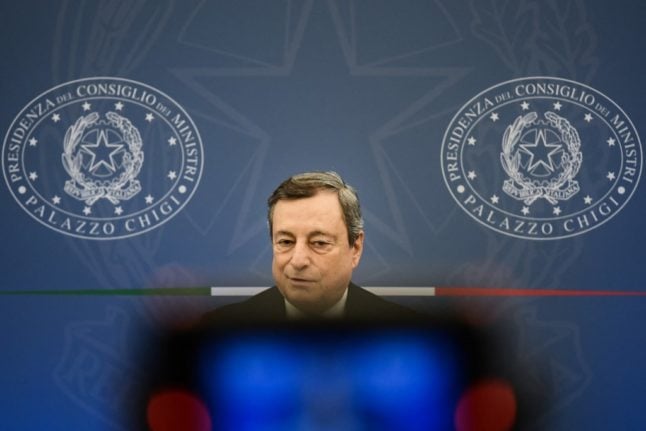The new aid bill was approved on top of 52 billion euros already allocated “that puts us among the countries that have spent the most in Europe,” Prime Minister Mario Draghi told reporters after a cabinet meeting.
READ ALSO: How much are energy bills rising in Italy?
Measures to come under the government’s decreto aiuti ter, or ‘third aid decree’, include the extension of a tax credit for companies to the end of 2022, and a state guarantee for those that take out loans to bridge any liquidity issues caused by rising bills.
Ministers also agreed a 150-euro cost of living ‘bonus’ for those with an annual income of less than 20,000 euros before tax, including pensioners, which will apply to around 22 million people.
There are also funds for the health and agricultural sectors, sport, education, cinemas and theatres, and public transport.
#Conferenzastampa, Draghi: In Consiglio dei Ministri aiuto alle #famiglie e alle #imprese per affrontare la crisi energetica, gli aumenti delle bollette e, più in generale, il carovita pic.twitter.com/87IG5xBZX9
— Palazzo_Chigi (@Palazzo_Chigi) September 16, 2022
The 12-month inflation rate in Italy rose again in August to 8.4 percent, a new record since 1985, according to figures published Friday by Istat, the national statistics agency.
The spiralling cost of living has been a major issue in the campaign for elections, which opinion polls suggest will hand an easy victory to the right-wing coalition led by far-right leader Giorgia Meloni.



 Please whitelist us to continue reading.
Please whitelist us to continue reading.
Member comments